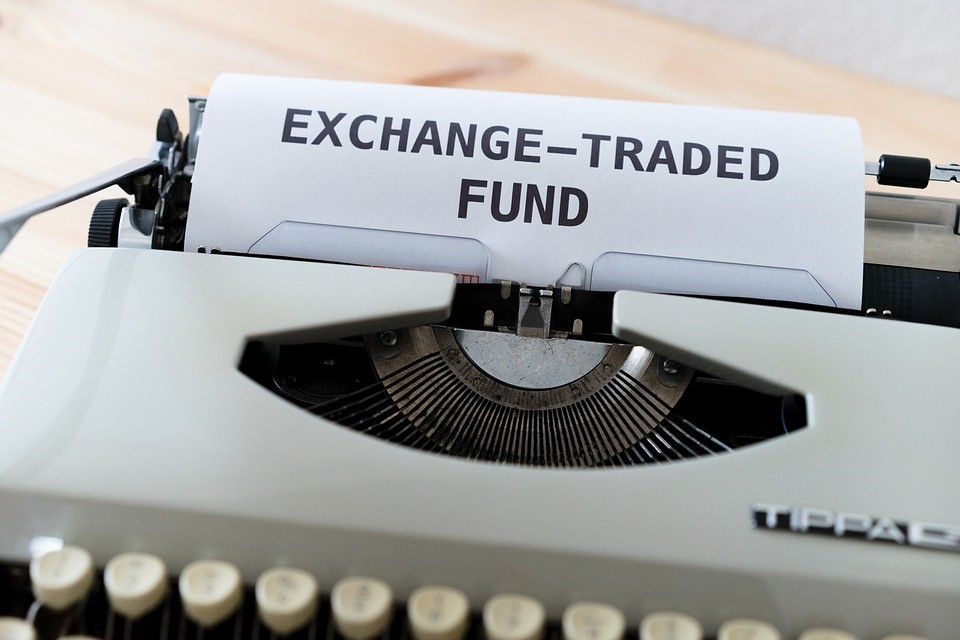With CFDs you can trade American ETFs
A few years ago, the US financial markets were shocked when the authorities announced at very short notice that due to the MIFID II regulations, it would no longer be possible for European investors to trade US ETFs. In the US and Canada, the range of so-called exchange-traded funds is much wider than in Europe. The new regulations came into force on January 3, 2018 and MIFID makes trading for US ETFs more difficult, at least in the short term.
Among other things, the regulations require companies like Avanza to disclose all costs built into the product. US ETF operators have not always chosen to share this information with companies like Avanza. To complicate matters, Avanza, for example, has chosen to view the US ETFs as something that is not aimed at the retail market. This means that according to Avanza’s rules, they are not for so-called non-professional customers.
What few people know is that CFDs are the alternative to US ETFs for European investors who want to buy North American exchange-traded funds. This means it is possible to buy exchange-traded funds such as SP500 (SPY), Rusell 2000 (IWM) and many others.
Why was there a ban on trading US ETFs?
The reason for the ban is that most US ETFs do not meet the requirements of the new European regulation MIFID II. This regulation requires all exchange-traded funds to have a so-called KID, an information document. This document (“KID”) explains in a few pages what each individual ETF consists of, the risk and its costs and some other details.
Under the new rules, each issuer of an exchange-traded fund will also have to provide a so-called “prospectus”. KID (Key Information Document) when their clients make their investment decisions in these instruments. The American ETF players have communicated that they unfortunately will not produce these documents, which by extension creates great difficulties for companies such as Avanza and Nordnet to comply with the new regulations. The relevant regulations include MiFID2 and PRIIPs.
The interesting thing is that today the KID information can easily be placed in several pages of stock market analysis. This regulation does not prevent the European investor from investing in futures, binary options or cryptocurrencies, products that involve much higher risk than an exchange-traded fund. European regulators believe they must protect us from our own stupidity. Now, it is not really the concern for investors that the bureaucrats in Brussels have in mind.
The reality is that bureaucrats are trying to encourage and benefit the European market for exchange-traded funds, which is now experiencing a boom. The problem is that European ETFs tend to be less liquid, less diverse and come with higher commissions. That is, the products favor the ETF issuers and force individuals to use a less competitive market.
What are the alternatives to US ETFs?
The easiest way to trade these US funds would be to open an account with a North American broker. This would be the perfect solution: open an account with a broker in the US, and work with all types of ETFs from there. However, this requires you to find a US broker that allows foreign nationals to open accounts. Are there such brokers who accept “European refugees”? We have been told that they do not allow Europeans to trade exchange-traded funds in the US.
However, the solution is to trade ETFs using contracts for difference (CFDs). The regulatory framework does not prohibit European investors from trading an exchange-traded fund with such a broker.
There are now several CFD traders who legally offer their clients to buy and sell exchange-traded funds (ETFs). However, one of our favorites is the listed company Plus500.
European ETFs
The problem with Europe is that the region is fragmented. This means that the European market has higher commissions than the North American market and a much shorter history. In general, there are also fewer investment opportunities than in the US. But still, and especially focused on the long term, there are valid European options, albeit not very many.
European alternatives to SPY
SPY is a US exchange-traded fund that offers investors exposure to the US S&P 500 stock market index. The SPY thus provides the same return as this index before costs.
| Short name | Name | American equivalent | Index |
| SPY5 | SDPR S&P 500 UCITS ETF | SPY | S&P 500 |
| CSSPX | iShares Core S&P 500 UCITS ETF USD | SPY | S&P 500 |
| IUSA | iShares Core S&P 500 UCITS ETF USD Dist. | SPY | S&P 500 |
| VUSD | Vanguard S&P 500 UCITS ETF | SPY | S&P 500 |
| ESD | BNP Paribas Easy S&P 500 UCITS ETF | SPY | S&P 500 |
The list above is about the simplest exchange-traded fund available, SPY (SP500). The short names are the tickers that appear in brokers such as Nordnet, Avanza or Degiro.
In addition to SPY, a group of interesting sector ETFs representing the North American economy are available for replacement:
Sector ETFs in Europe
| ETF | Name | American equivalent |
| Consumer discretionary | SPDR S&P U.S Consumer Discretionary Select Sector UCITS ETF | XLY |
| Consumer | SPDR MSCI US U.S. Consumer Staples Select Sector UCITS ETF | XLP |
| Energy | SPDR S&P U.S Energy Select Sector UCITS ETF | XLE |
| Finance | SPDR S&P U.S Financial Select Sector UCITS ETF | XLF |
| Healthcare | SPDR S&P U.S Healthcare Select Sector UCITS ETF | XLV |
| Industrial | SPDR S&P U.S. Industrials Select Sector UCITS ETF | XLI |
| Materials | SPDR S&P U.S Materials Select Sector UCITS ETF | XLB |
| Technology | SPDR S&P U.S Technology Select Sector UCITS ETF | XLK |
| Utilities | SPDR S&P U.S Utilities Select Sector UCITS ETF | XLU |
Other useful ETFs in the US market have been found in various market makers. These are the most important ones:
Other useful ETFs
| Short name | Name | American equivalent |
| STOXX600 | Amundi ETF STOX600 | STOXX600 |
| Gold | ETFS Metal Securites ETFS Physical Gold | GLD |
| Silver | ZKB Silver ETF AA CHF | SLV |
| Emerging Markets | Blackrock Global Funds Emerging Markets Fund D2 EUR | EEM |
| Emerging Markets | SPDR MSCI Emerging Markets UCITS ETF | EEM |
| Bonds | SPD Bloomberg Barclays 7-10 Year U.S Treasury Bond UCITS ETF | IEF |
| Bonds | iShares $ Treasury Bond 7-10yr UCITS ETF USD (Acc) | IEF |
These are relatively easy to buy and sell in almost any broker such as Nordnet, Avanza or Degiro. In general, they have higher management costs than their counterparts in the North American market and lower liquidity. The extent to which this affects the final profitability remains to be seen.
The MIFID II regulation of the European Commission has complicated the lives of individual investors, and it is here to stay.
About the Viking
With Viking’s signals, you have a good chance of finding the winners and selling in time. There are many securities. With Viking’s autopilots or tables, you can sort out the most interesting ETFs, stocks, options, warrants, funds, and so on. Vikingen is one of Sweden’s oldest equity research programs.
Click here to see what Vikingen offers: Detailed comparison – Stock market program for those who want to get even richer (vikingen.se)













